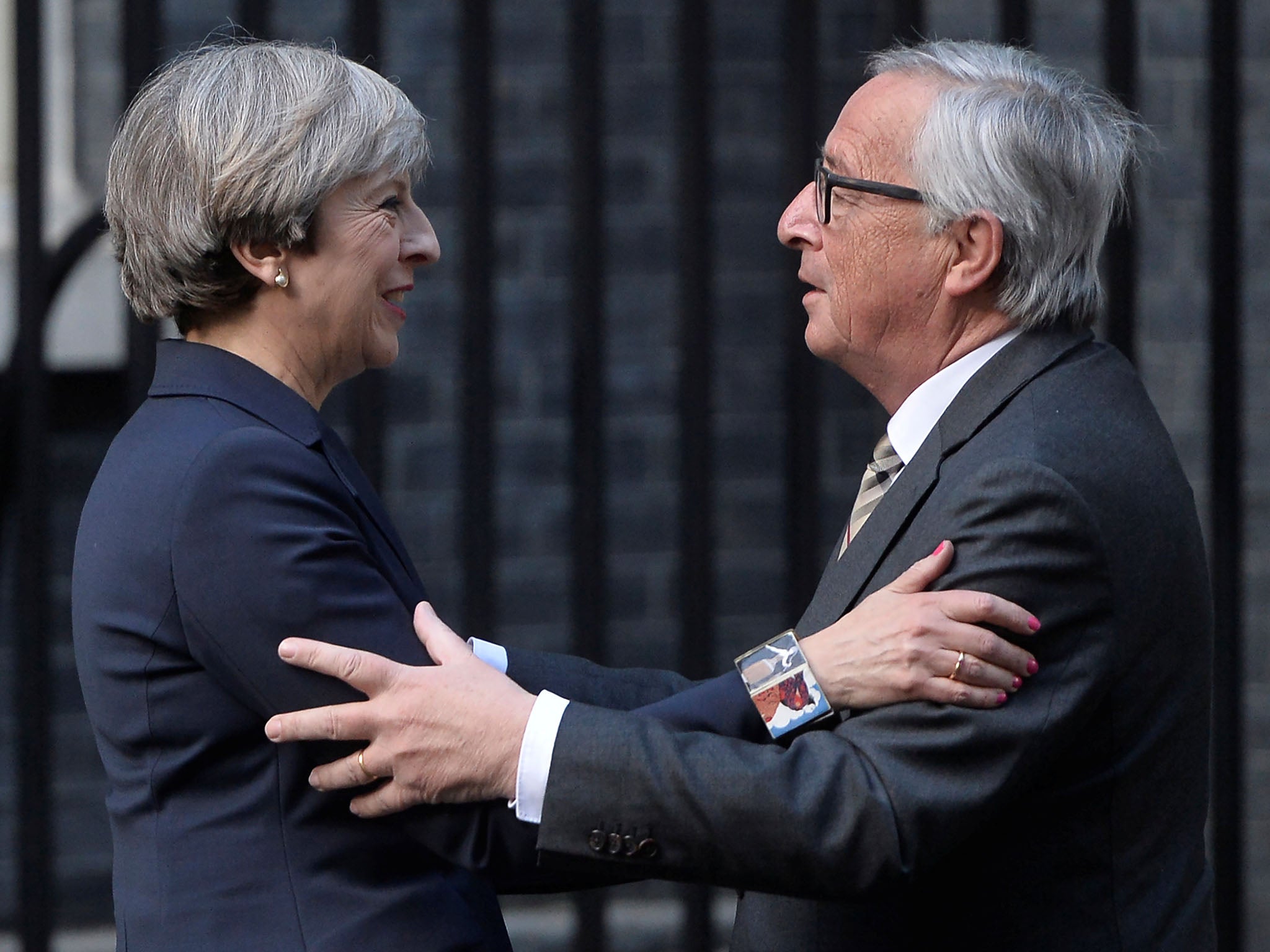Theresa May has one Brexit dinner to save her administration
The rising frequency of Theresa May's attempts to 'break the deadlock' with Brussels only shows how unbreakable it is


Were the circumstances not quite so serious, it might almost be quite fun this “breaking the deadlock” business.
It is a good job Philip May appears to be the laid back sort, or all these, “breaking the deadlock” European jollies might start to sound like an excuse.
It is scarcely three weeks since Theresa May was in Florence breaking the deadlock. Now she’s off to Brussels to break the deadlock, this time in the form of dinner with Jean Claude Juncker, Michel Barnier, David Davis and Juncker’s consigliere Martin Selmayr. It is the precise kind of turbo-awkward occasion that Selmayr likes to leak in full agonising detail to the German press.
That Theresa May should be so determined to break the deadlock in Brexit negotiations is because she knows perfectly well her administration and the dignity of her place in history depend on it.
It is the kind of dinner you might remember eating in primary school. In front of Theresa May is a stodgy, oversized and downright disgusting main course, in the form of Britain’s EU exit bill. She knows that until she has eaten enough of it, Mr Juncker and the others will not give her permission to turn the plate round and move on to the pudding of future trade relations.

It is in the not-quite-privacy of these occasions that leaders decide among themselves who is going to say what when. If, at some point in the next few weeks or months, Monsieur Barnier and David Davis appear at one of their now traditional joint press conferences, and announce that the two parties are now in a position to consider moving talks on to trade, it will in all likelihood have been decided upon at this dinner.
Politically, Theresa May is already finished. But if deadlock continues, it will finish her even sooner than thought.
The warning signs of a ‘no-deal’ Brexit are already flashing like fireworks in the night sky. Foreign direct investment plummeting, the pound at risk of plunging again. If the Bank of England has to hike interest rates merely to protect sterling, in the midst of a downturn during which ordinarily it would seek to cut them, the consequences teeter on the edge of catastrophic: tumbling house prices, negative equity, repossessions. If the deadlock remains unbroken into the new year, and this uncertain and frightening world looms ever larger on the horizon, the frenzy will assuredly bring down the Prime Minister.
But can the deadlock really be broken?
We are at the stage where the dire consequences of ‘no-deal’ Brexit are becoming increasingly real, not just for Britain but for the EU too. The big hole in the EU budget, the de facto closure of important markets for French, German and Italian products, and the lack of access to City of London financial services.
These are precisely the fears that, according to the Fisher Price My First Politicians of the hour, like Chris Grayling, are meant to compel both parties into exercising their mutual self-interest.
But as millions of people of a certain age – below say 60 years old – are now discovering, they are actually living through real history for the first time. A real history in which things appear just to happen. In which rhyme or reason do not win out.
The UK is constantly criticised for apparently not knowing what it wants. But the form and nature of the European “enemy” as Philip Hammond unwisely calls it, constantly shifts. Once it was hoped that Paris and Berlin could be relied upon to compel the EU’s power-brokers to prepare a deal.
Now, it appears that Paris and Berlin are telling their companies to prepare for a ‘no-deal’ Brexit, and demanding the UK makes a very large payment. The sympathetic ears may lie elsewhere; perhaps; indeed, in the unlikely form of EU Council President Donald Tusk.
But the UK’s position remains baffling. Even if no compromise can be found on the size of the divorce bill, its desires on trade simply cannot be fulfilled. Liam Fox and the like are still of the view that a UK/EU trade deal should be “the easiest in the world” to sign because we begin at a point of complete regulatory convergence, where the UK’s regulations and the EU’s are identical. But the UK wishes to depart from regulatory convergence, and from the customs union and the jurisdiction of the European courts. The UK has had forty happy years as a professional EU look-a-like. Now it’s booked itself in for radical plastic surgery and expects not to lose any bookings.
Whether Theresa May gets to move on to pudding any time soon we can but wait and see. But nothing in the course of pure politics ever did run smooth, and the sudden alignment of mutual self-interest has rarely seemed any further away.
Join our commenting forum
Join thought-provoking conversations, follow other Independent readers and see their replies
Comments
Bookmark popover
Removed from bookmarks